The article and the work of the Japanese sculptor touched my soul, forcing me to think about the rice grains that nourished me.
When I was a child, my mother in particular and the elders in my village in general had a habit: whenever rice was served and the children dropped a grain of rice, if it was in a clean place, they would pick it up and eat it until it was all gone. If rice fell in a dirty place, they would use their hands or clean utensils to pick it up and feed it to the livestock. They never used a broom to sweep the rice. If the children accidentally stepped on a grain of rice, my mother would exclaim: "Oh, my child, you are so guilty." Similar to rice grains, salt grains were also respected to the point of superstition. Stepping on salt grains was a taboo in the lifestyle of my village.
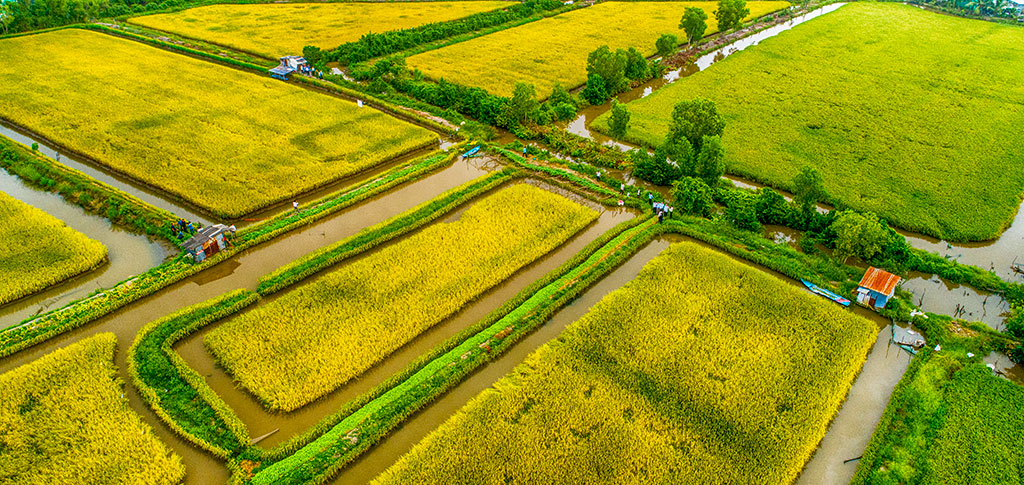
Large model field in Hong Dan district, Bac Lieu
Not only that, on the 15th and 30th of every lunar month, my villagers display two plates of rice and salt on the altar in front of their house to worship heaven and earth. When I was young, I asked my mother why we didn't worship more precious things, and she said: "Rice and salt are pearls, what is more precious than that, my child?"
In the spiritual life of my village, there is a fairy tale about rice grains, which says: Once upon a time, rice grains were as big as dry coconuts, and when the rice was ripe, they rolled into the owner's house. One day, at the house of a woman who was addicted to gambling, right when she was rushing to the gambling table, rice from the field rolled into the house, blocking the path. Frustrated, she used a broom to sweep and hit the rice grains, causing them to break. From then on, the rice grains became as small as they are now and when ripe, they no longer rolled into the house.
That fairy tale lingers like mist and smoke in the lives of children in my village from generation to generation about the reaction of rice grains and the attitude of farmers towards rice.
A poor country, a poor village, a poor mother when producing rice to raise us must have spent more sweat and tears than those in well-off villages. Moralists call it merit. As for me, I can only call it a calculation. Anyone who cannot do that calculation lacks human dignity.
When I grew up and left the village, I had some life experiences and then I realized the reverence for rice grains of my mother and my villagers. The land of my village used to be an area of land contaminated with saline alum for a long time, and at that time there was no science or technology to influence it. My villagers grew rice based on experience passed down from generation to generation. Because the land was contaminated with saline alum, in the rainy season, weeds such as reeds, sedges, and saltwater grasses competed to grow up to the waist of their pants. If the usual farming method in the Mekong Delta is to plow and harrow in the rainy season and then plant, in my village, the land had too much grass to plow and had to be cleared with a weed cutter. After clearing, we had to clear the grass and then plant, and instead of planting by hand as usual, we had to use a planting stick, poking a hole into the hard ground to plant young rice seedlings. Compared to land that could be plowed and planted by hand, land that could be cleared of grass and planted with a stick was twice as hard. I remember the August rainy season, my mother had to immerse herself in the deep fields to plant until the light was red before planting a new crop. The rice in my village's fields grew very quickly, but the soil had too much grass, and had salty alum roots, so just a slight change in the weather, such as: the drought of Mrs. Chan, the rain stopped early, the north wind came earlier than usual... and immediately the rice bushes as big as chicken bowls suddenly withered and died. The farmers "stood still" looking at their fields, in their eyes the flame of hope for a Tet with firecrackers, new clothes, a pot of braised pork with duck eggs... also died out along with the rice bushes.
The story of crop failure happened frequently in my village, so the sparsely thatched-roofed hamlet was always poor and ragged. When someone invited us to a death anniversary, the villagers could only bring a bottle of 3-quart rice wine to contribute. Anyone who could bring two bottles of wine to a funeral had the right to speak loudly at the death anniversary. When I was young, I had the opportunity to take my bride out of the village in old clothes, I carried a heavy inferiority complex and often blamed the heavens and the earth for being born in such a poor village.
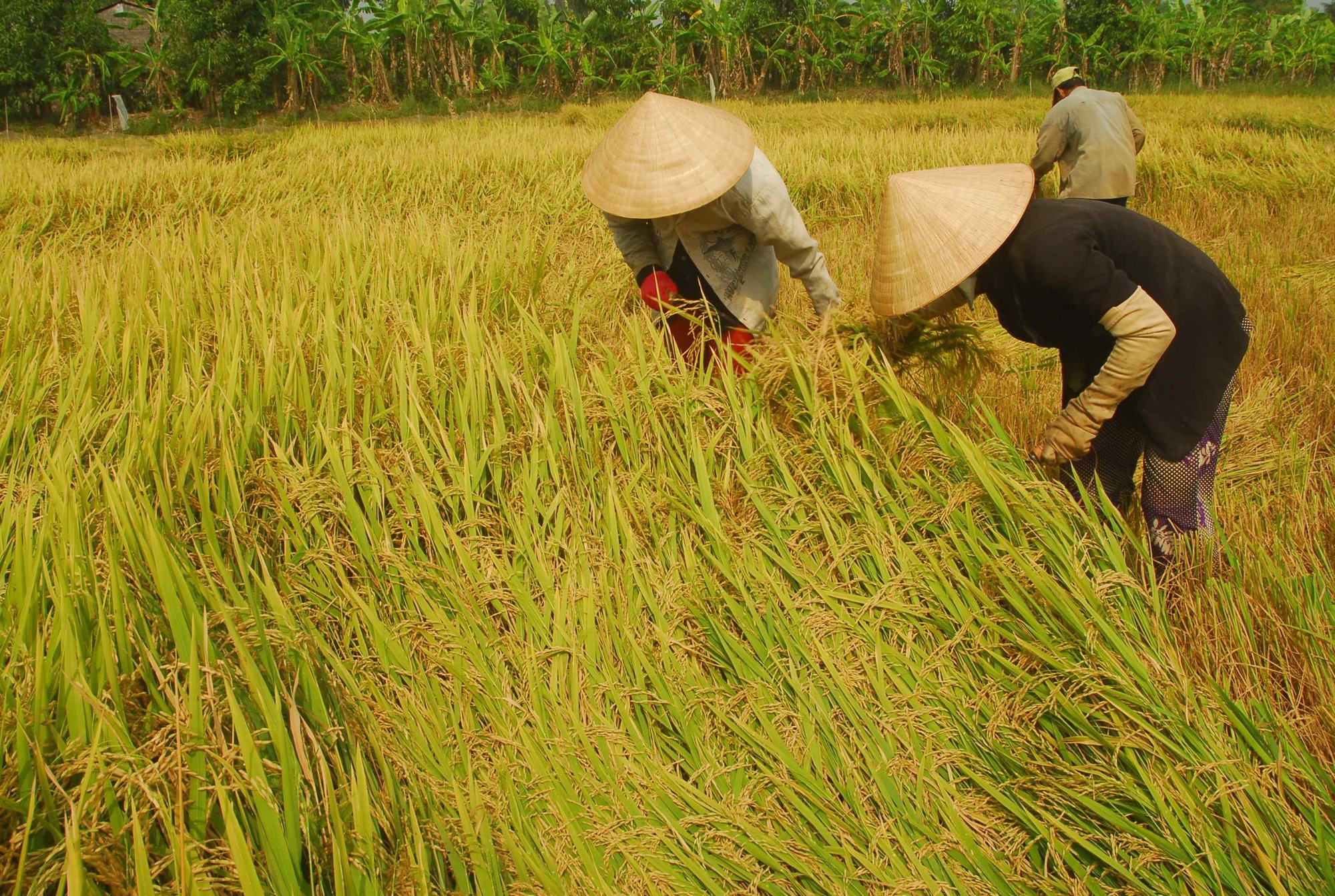
Rice grains are pearls given by God
During the years of crop failure, my father angrily left for another land to thresh rice for hire. My mother and my second sister took their baskets to the fields early in the morning, rummaging through the grass and saltwater grass to find the remaining firm rice grains. They braved the sun until late afternoon and when they returned home, they could only glean a small basket of apples each. Those rice grains were dirty and not as bright and plump as the rice of the harvest season. My mother pounded the rice in a mortar and sifted out the rice grains that were broken at the head and forehead and skinny like the people in my hometown who were weak and pale from lack of nutrients. Yet, "rags can also help nails", those rice grains mixed with cassava helped my siblings and I survive through the lean season to wait for the next crop. I remember clearly the taste of that rice grain, it was less fatty and sweet than salty. Perhaps that salty taste was due to the sweat and tears of my mother and my second sister.
Because it is so difficult to produce rice that it makes our eyes bleed, my villagers value rice with great reverence. As if rice is a sacred object, and has a soul within it.
In each era, each region, the nutritional value and monetary value of rice grains change little, but the value of the labor used to produce rice grains changes greatly.
There is a math problem of rice grains and life that is very easy to calculate like addition, subtraction, multiplication, division but not everyone can do that calculation. A poor country, a poor village, a poor mother when making rice grains to raise us must have spent more sweat and tears than those in well-off villages. Ethicists call it merit. As for me, I can only randomly call it a calculation. Anyone who cannot do that calculation lacks human personality.
Source link




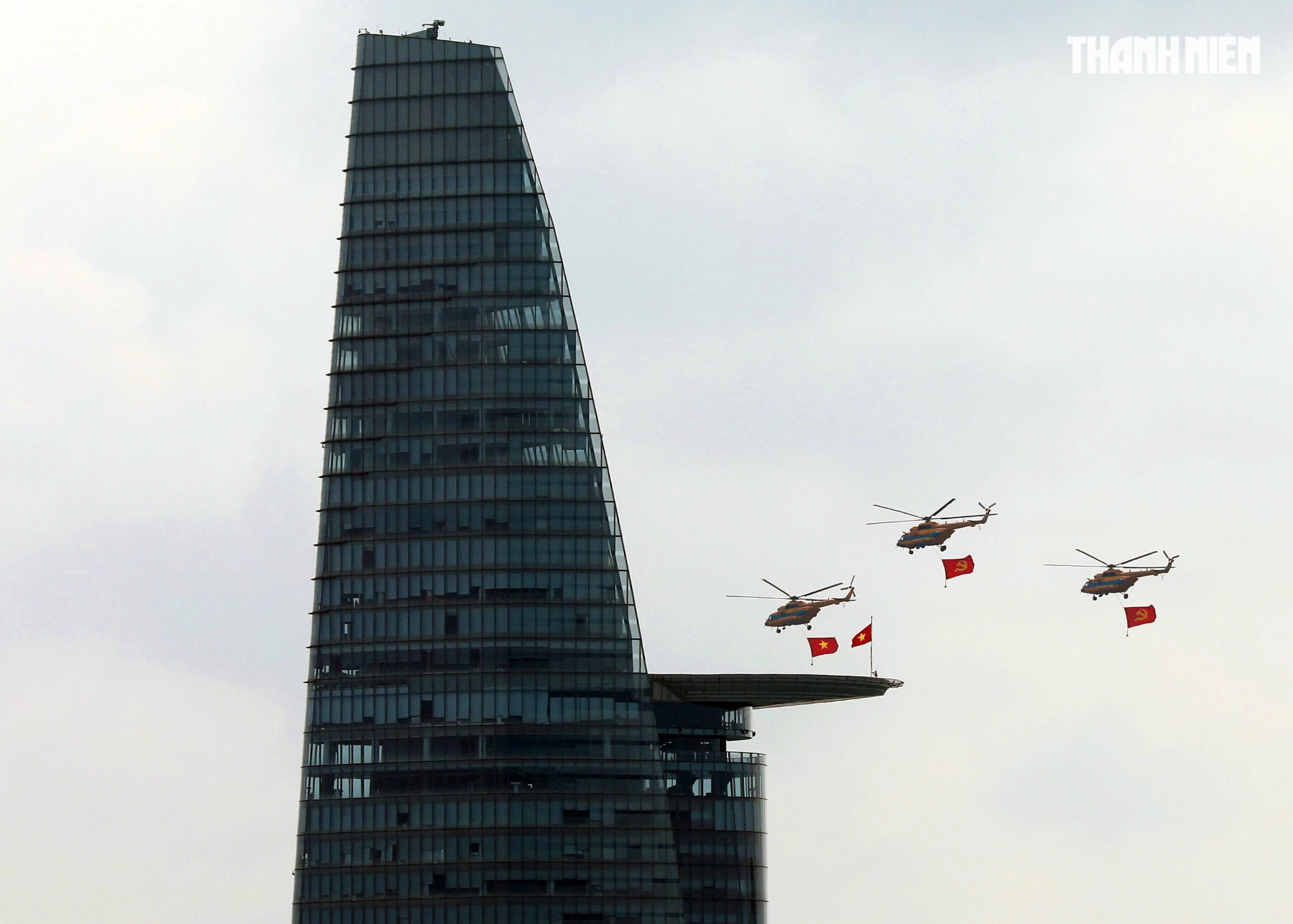








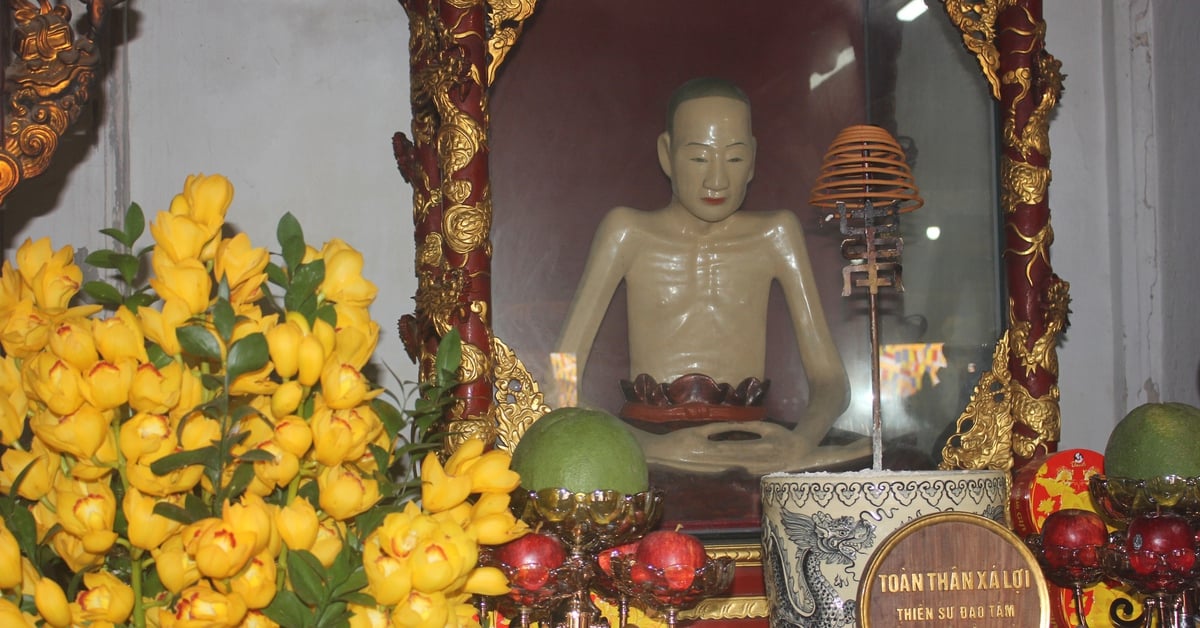
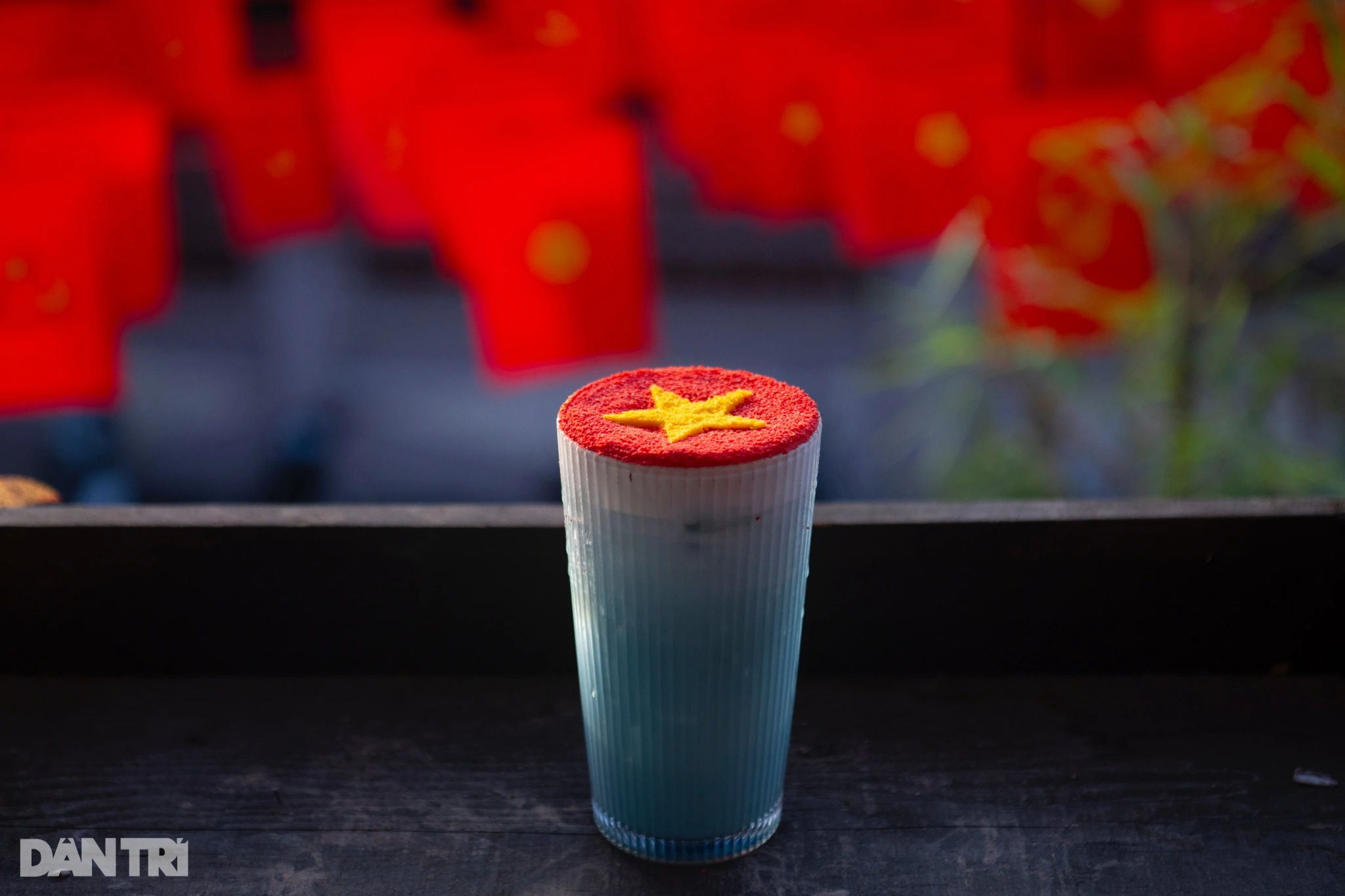
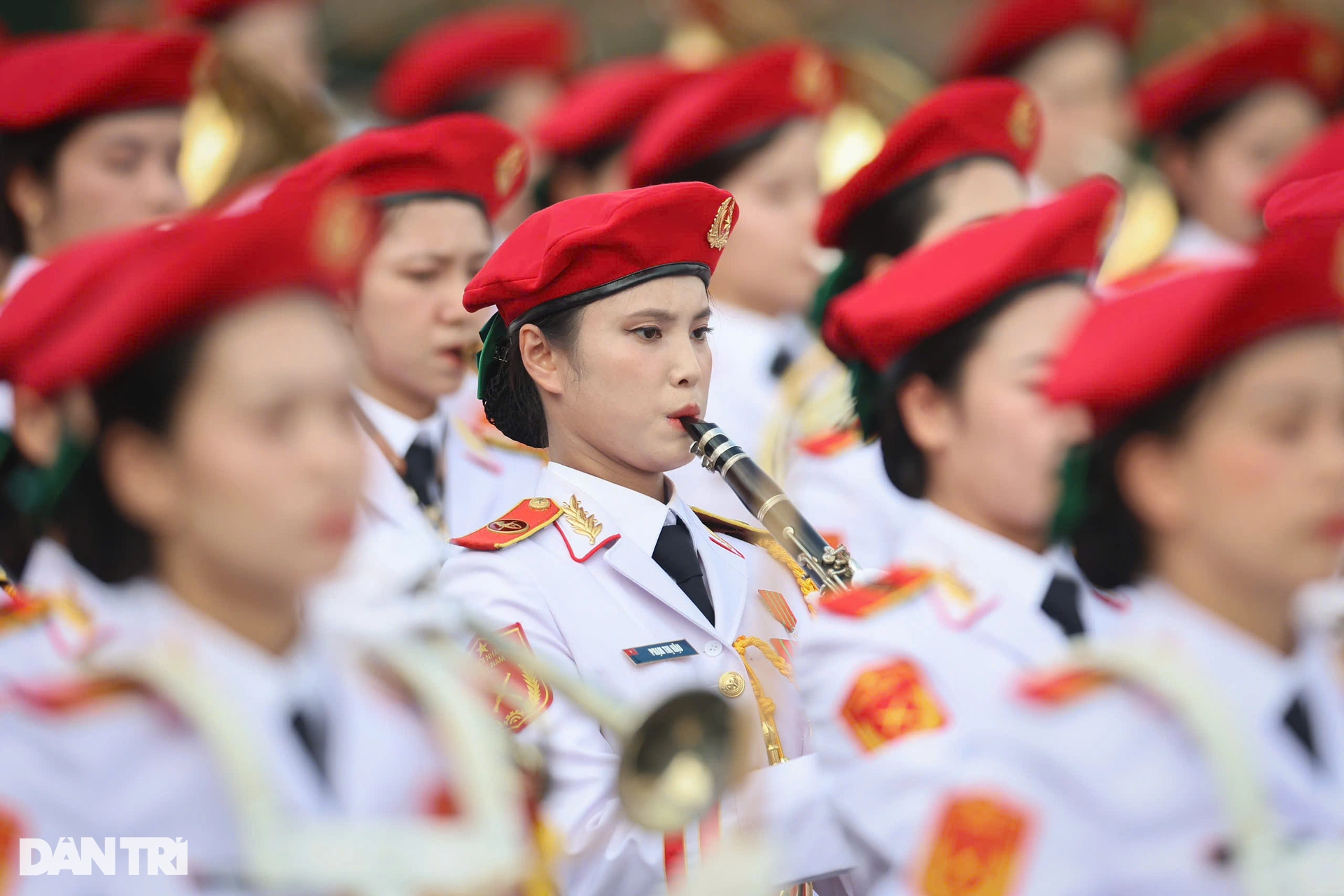
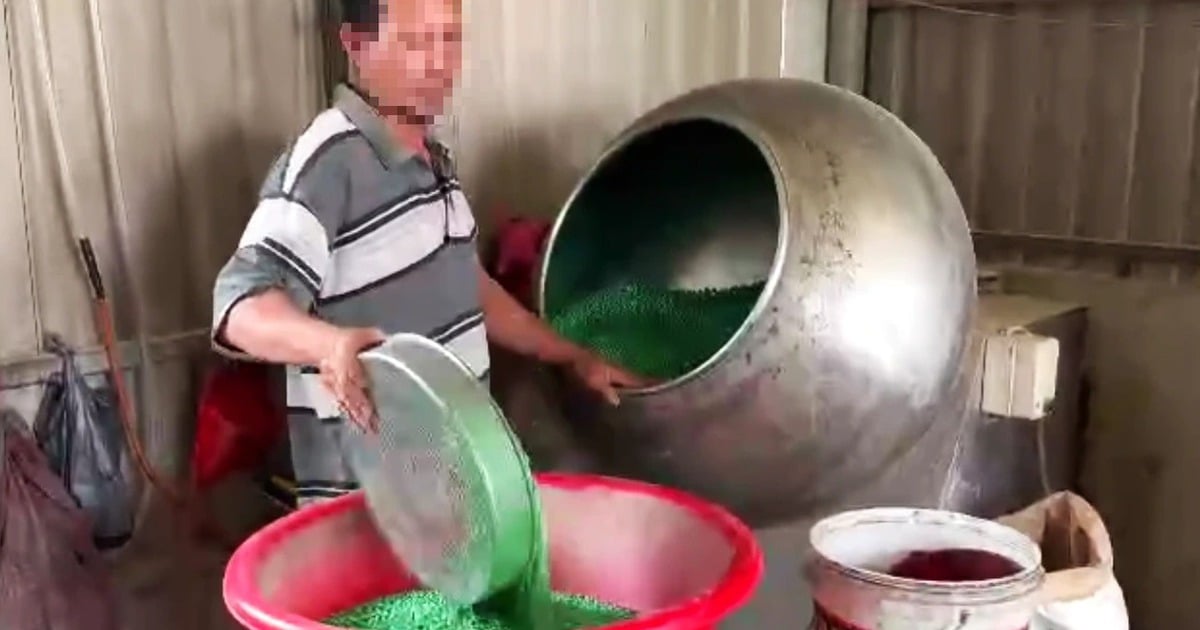








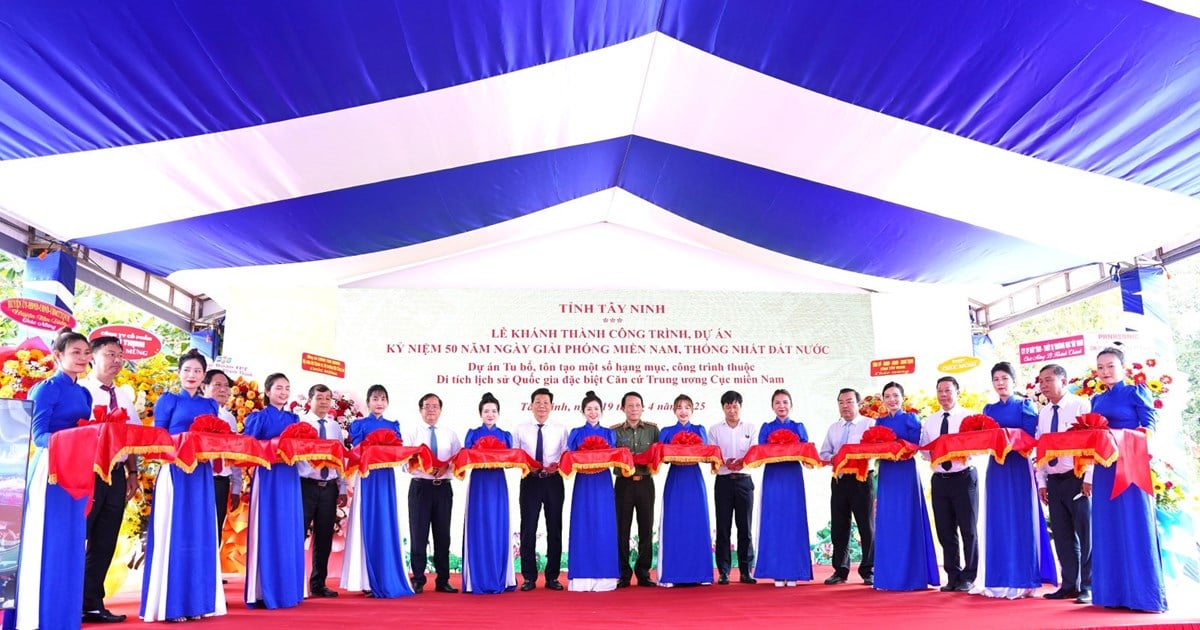


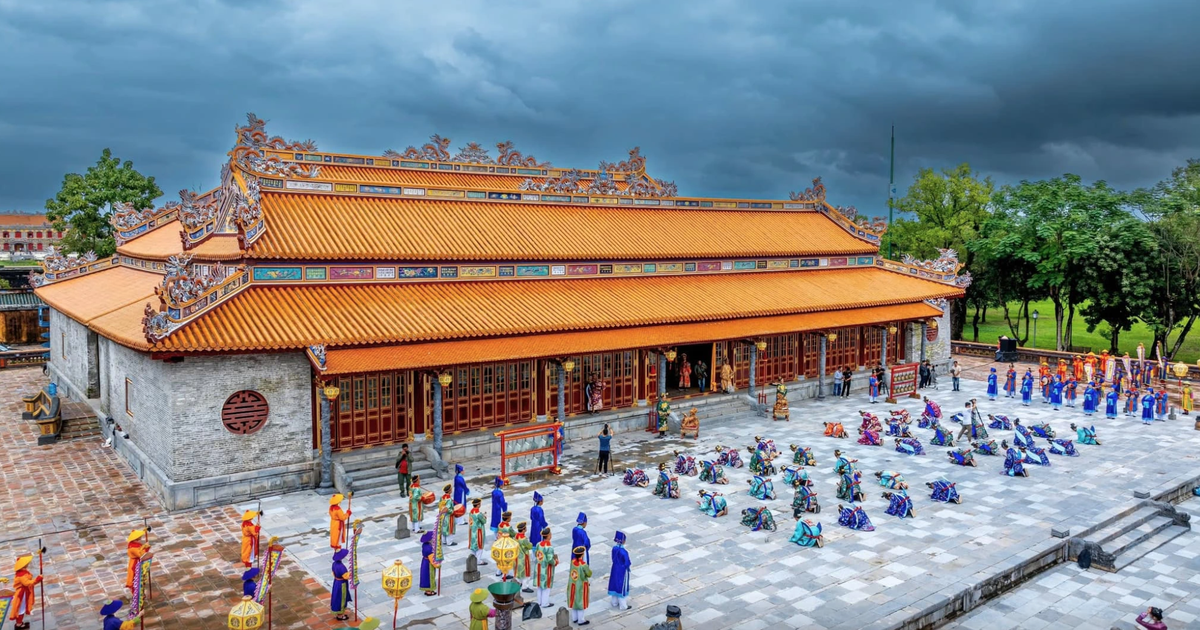
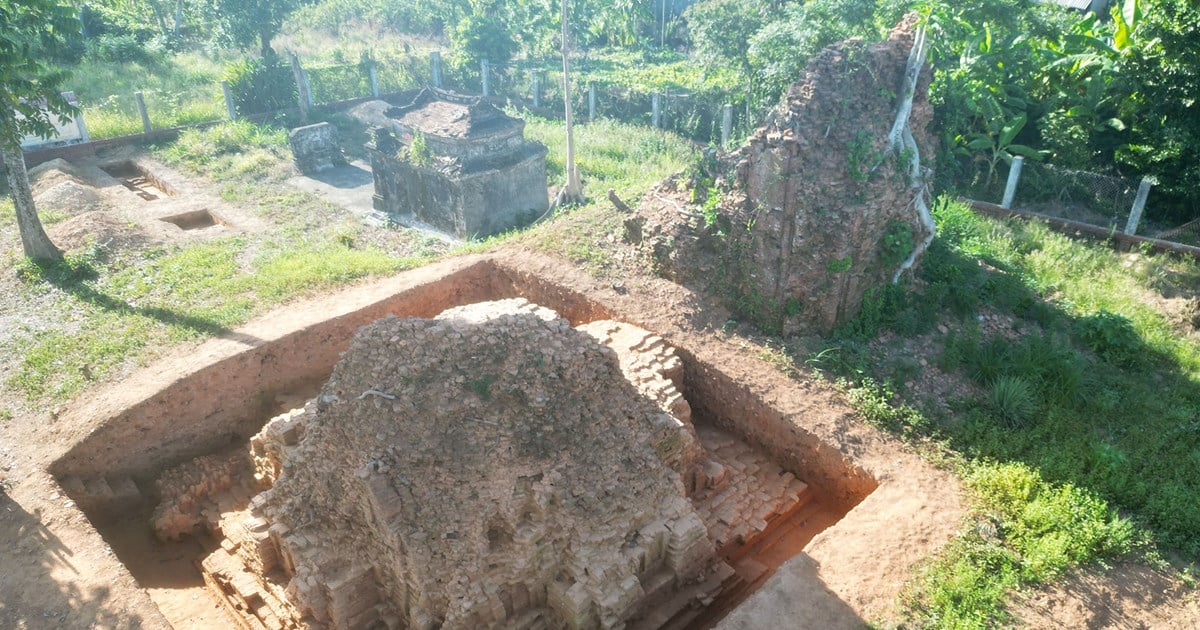
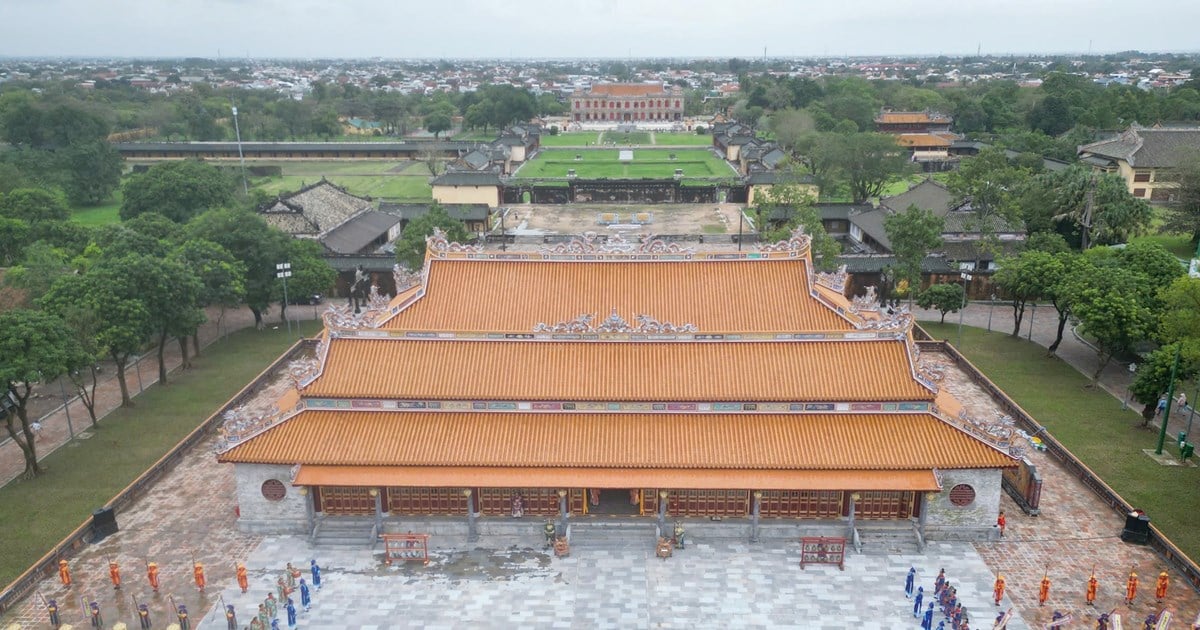
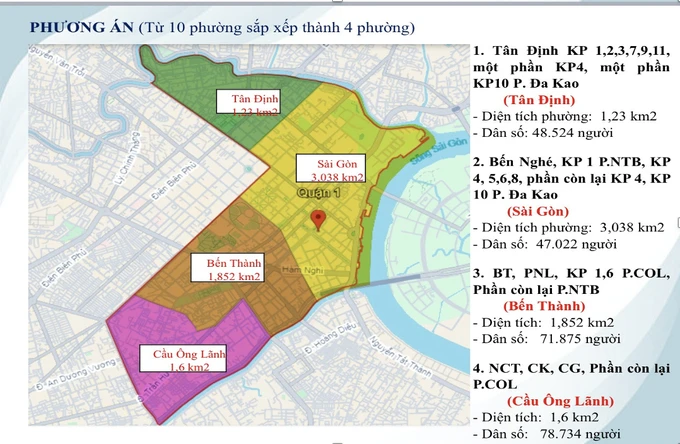

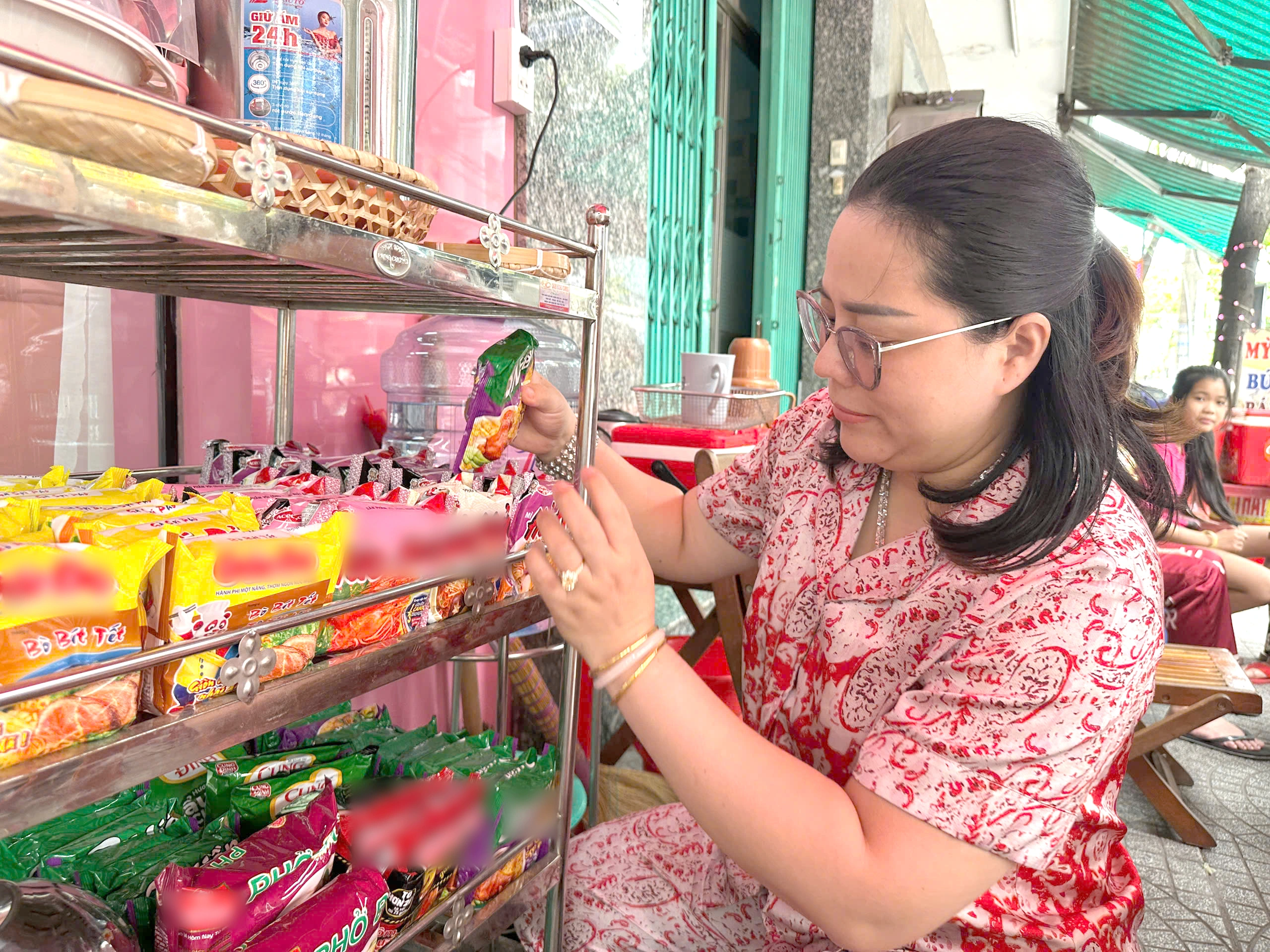

















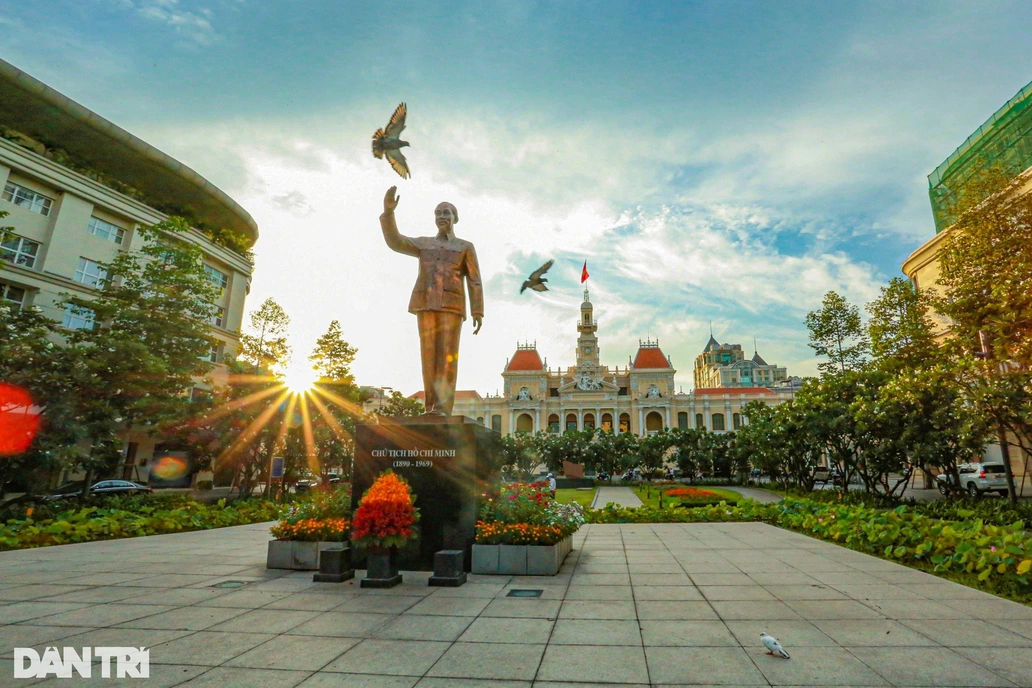
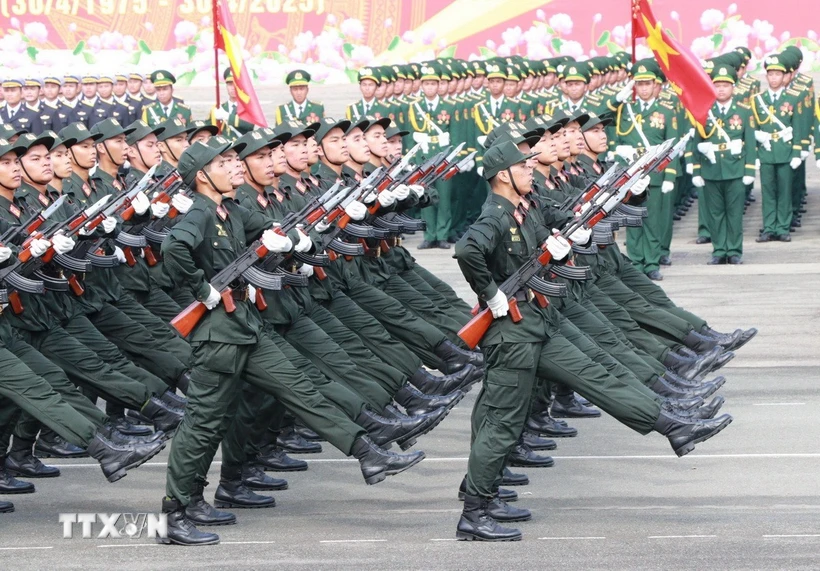







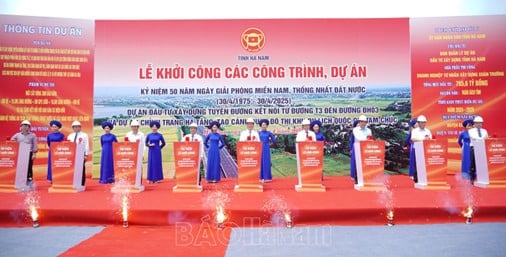





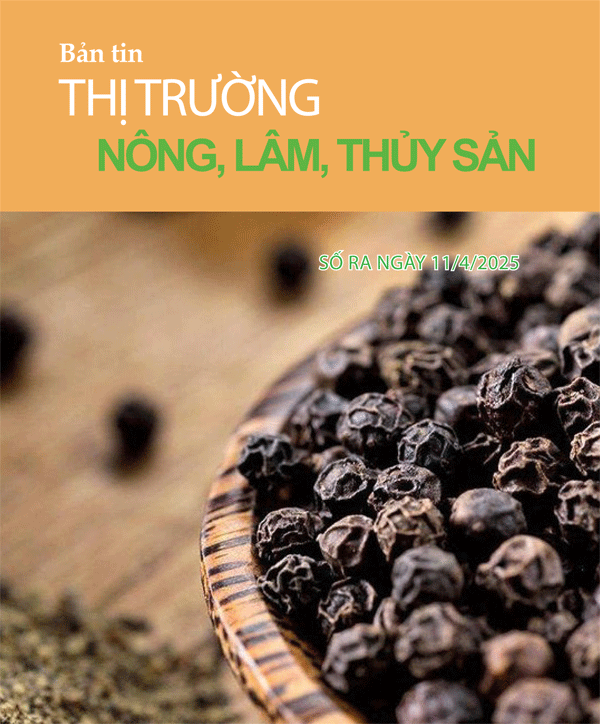


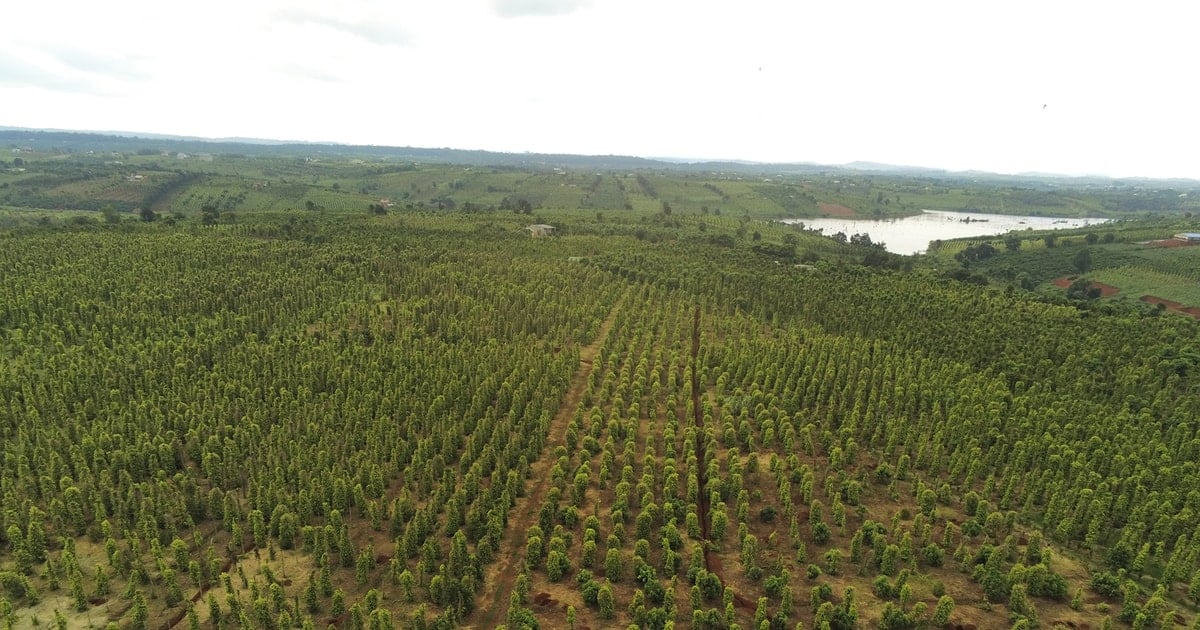


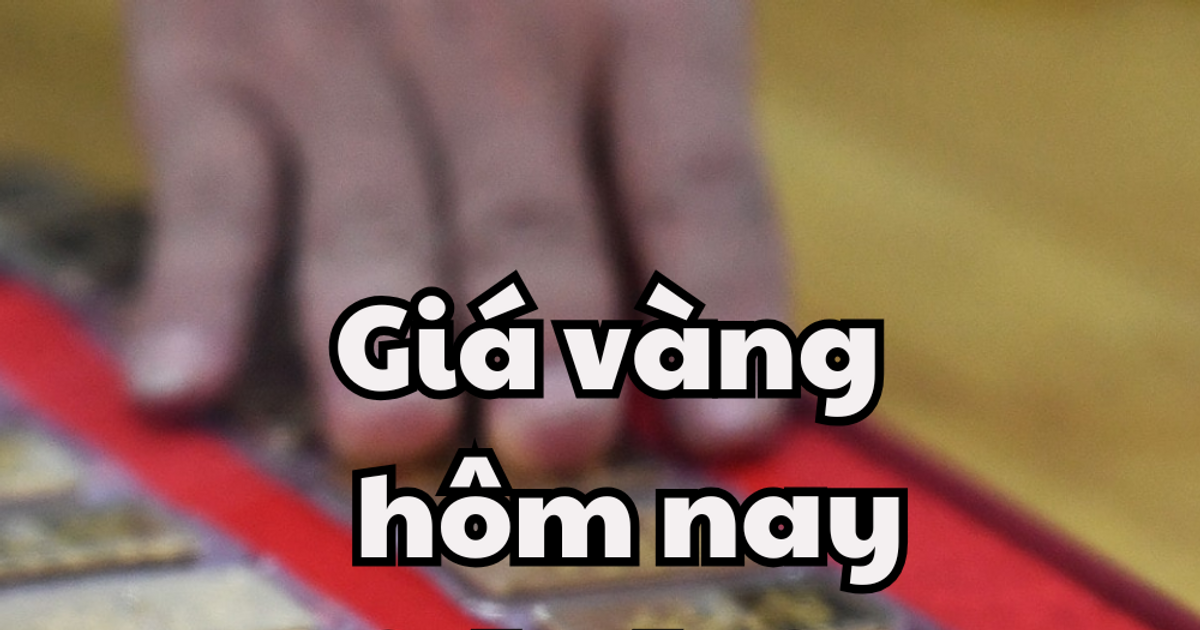


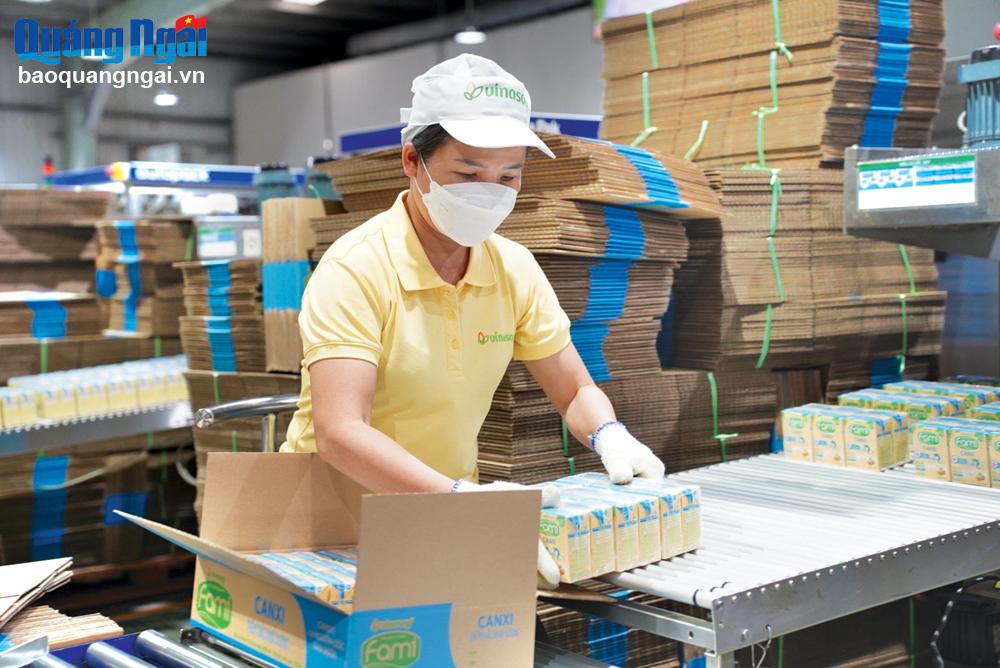





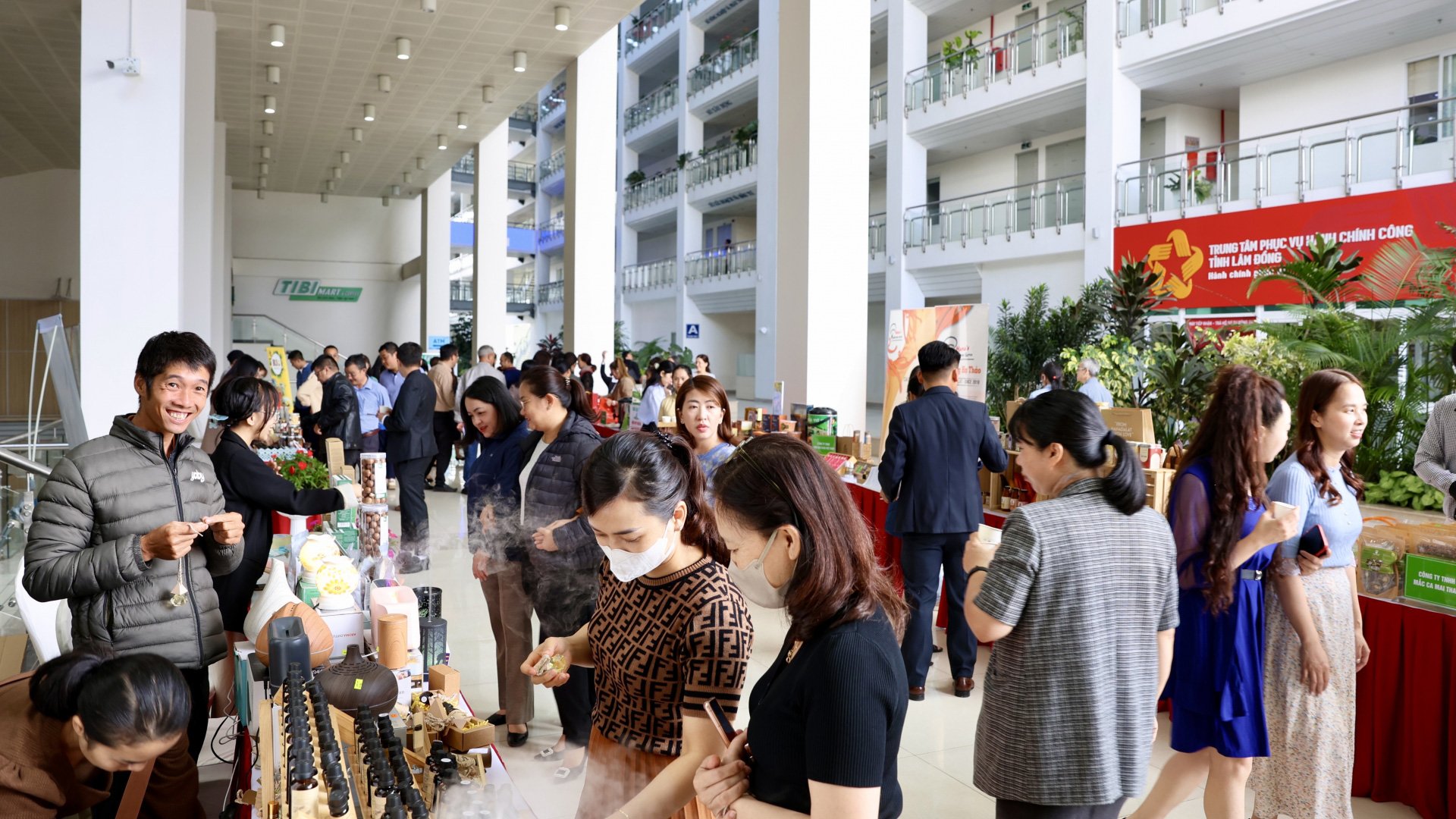



Comment (0)